What essential skills and trends should cybersecurity professionals navigate in 2024?

10 Essential Skills for Cybersecurity Analysts in 2024
Welcome to our comprehensive guide on the "Top 10 Cybersecurity Skills"! In today's digital age, where cyber threats are continually evolving, the demand for skilled cybersecurity professionals is at an all-time high. Whether you're an aspiring cybersecurity analyst, a seasoned cybersecurity engineer, or just starting your journey in this dynamic field, mastering the right skills is crucial. This guide will delve into the essential cybersecurity skills for beginners, outline the basic skills for cybersecurity professionals, highlight the entry-level cybersecurity skills needed to break into the field, and discuss the specific skills required for a cybersecurity analyst and a cybersecurity engineer. Additionally, we'll cover how to effectively showcase these cybersecurity skills on your resume. Through interactive elements, real-world scenarios, and practical tips, you'll gain valuable insights to enhance your career and become a key player in defending against cyber threats.
What is the demand of cybersecurity professionals
As technology advances and more data moves online, cyber threats are becoming increasingly sophisticated and frequent. Cybercriminals are constantly developing new methods to breach systems and steal sensitive information, making the need for skilled cybersecurity professionals critical. Emerging technologies like artificial intelligence, machine learning, and cloud computing are transforming cybersecurity. Due to this, cybersecurity is a well-compensated field, with the average salary for cybersecurity professionals in the United States exceeding $100,000 per year. The job market is also expected to increase, with the U.S. Bureau of Labor Statistics projecting a 35% increase in cybersecurity jobs over the next decade.
We shall discuss the top 10 cybersecurity skills which is crucial for anyone looking to excel in this field. Our comprehensive cybersecurity skills list will guide you through the essential competencies needed. Follow our detailed cybersecurity skills roadmap to strategically build and enhance your expertise. Start mastering these skills today to stay ahead in the cybersecurity domain!
10 cybersecurity technical skills and Trends for Professionals
As technology advances, the field of cybersecurity is constantly evolving. Cybersecurity Professionals in this industry must stay ahead to hone essential skills while keeping up with the latest trends. Mastering the technical skills required for cybersecurity involves proficiency in network security, cryptography, and incident response to effectively protect against and mitigate cyber threats. Let's look at the skills and trends crucial for cybersecurity professionals 2024.
1. Threat Intelligence and Analysis
Threat intelligence and analysis are prominent technical skills required for cyber security. Having this technical skill help in identifying and mitigating potential cybersecurity threats. Professionals should be trained to proactively collect, analyze, and interpret data from various sources to identify vulnerabilities and potential cyber-attacks. Professionals can safeguard their organizations' digital assets by staying updated with the latest threat intelligence tools and techniques.
2. Cloud Security
one of the Skills Required for Cybersecurity Jobs is cloud security. With the increasing adoption of cloud computing, professionals must deeply understand cloud security. Cloud environments have unique challenges, including data breaches, unauthorized access, and misconfigurations. Professionals who want to enter this field should be well-versed in cloud security best practices, encryption techniques, and secure configuration management.
3. Incident Response and Management
Swift and effective incident response and management can minimize the impact and prevent further damage in the face of a cyber-attack. It is crucial cybersecurity skill that every Professionals must have to promptly detect, analyze, and respond to security incidents. This includes developing incident response plans, conducting forensic investigations, and implementing remedial actions to prevent future incidents.
4. Network Security
One of the top cybersecurity technical skills is network security, which involves protecting and monitoring networks to prevent and respond to unauthorized access and threats. Securing network infrastructure is crucial to protecting against unauthorized access and data breaches. Moreover, it would help if you had a strong knowledge of these concepts such as:
· Security Protocols
· Firewalls
· Intrusion detection systems and other security measures.
Understanding these concepts will help you monitor and analyze network traffic, detect and mitigate potential threats in real-time, and it is skills required for cybersecurity professionals.
5. Application Security
Application Security, a crucial component of the 10 Essential Elements of Cyber Security skills, requires specialized skills in secure coding practices, vulnerability assessment, and penetration testing to protect web and mobile applications from cyber threats.
As applications become more interconnected, securing them against vulnerabilities and attacks becomes paramount. Professionals should be well-versed in secure coding, vulnerability assessment, and penetration testing to identify and remediate application weaknesses. Professionals can prevent unauthorized access and potential breaches by implementing robust application security measures.
6. Data Privacy and Compliance
One of the essential cybersecurity skills required is expertise in data privacy and compliance. With the increasing focus on data privacy and stringent regulations such as the General Data Protection Regulation (GDPR), professionals must thoroughly understand data privacy laws and compliance requirements. They should be able to assess and implement appropriate data protection measures, including encryption, access controls, and data anonymization techniques.
7. Artificial Intelligence and Machine Learning in Cybersecurity
In addition to traditional cybersecurity skills, expertise in artificial intelligence (AI) and machine learning (ML) is becoming increasingly valuable for cybersecurity professionals.
Artificial intelligence (AI) and machine learning (ML) revolutionize cybersecurity. Therefore, professionals should fundamentally understand AI and ML algorithms to leverage these technologies for threat detection, anomaly detection, and predictive analysis. By harnessing the power of AI and ML, professionals can enhance their cybersecurity capabilities and stay one step ahead of attackers.
8. Security Awareness Training
Human error leads to cybersecurity breaches, so professionals should prioritize security awareness and train and educate employees about probable threats, phishing attacks, and best practices for secure behavior. By fostering a culture of cybersecurity awareness, professionals can detect the risk and reduce the hazard of successful cyber-attacks.
9. Emerging Technologies and Trends
Being familiar with Emerging Technologies and Trends is an essential cybersecurity skill that allows professionals to anticipate and mitigate potential threats, stay ahead of attackers, and implement proactive security measures to protect organizations in an ever-evolving digital landscape.
It is paramount to stay updated with emerging technologies, such as the Internet of Things (IoT), blockchain, and quantum computing, which present new challenges and opportunities. Professionals should continually educate themselves about these technologies and understand their implications for cybersecurity.
10. Cybersecurity Governance and Risk Management
One of the top 10 cybersecurity skills is risk assessment and management, crucial for identifying, evaluating, and mitigating potential risks to secure organizational assets effectively. It involves establishing and overseeing security policies, procedures, and controls to mitigate organizational risks and ensure compliance with relevant regulations and industry standards.
Effective cybersecurity governance and risk management are essential to aligning cybersecurity strategies with business objectives. Professionals should possess the skills to assess and manage risks, develop cybersecurity policies, and establish governance frameworks. Professionals can effectively protect organizational assets by integrating cybersecurity into the business strategy.
Now, we shall behold a few soft skills that will work efficiently with co-workers.
Soft Skills required for Cybersecurity Jobs
What are the 5 soft skills of cyber security? Communication, problem-solving, critical thinking, adaptability, and teamwork are essential soft skills for cybersecurity professionals to effectively collaborate with cross-functional teams, convey complex technical information to non-technical stakeholders, and adapt to rapidly evolving threats and technologies.
Which skill is critical for cybersecurity careers? One of the most critical skills for successful cybersecurity careers is the ability to think critically and analyze complex problems from multiple angles to identify potential vulnerabilities, assess risks, and develop effective security strategies to protect an organization's digital assets.
Collaboration and Teamwork
Ability to work effectively with cross-functional teams, including IT, legal, and business stakeholders.
Strong communication and interpersonal skills to foster collaboration and build trust within the team.
Logical Reasoning
Capacity to analyze complex problems, break them down into manageable parts, and develop logical solutions.
Ability to think critically and make data-driven decisions based on available information and best practices.
Awareness of Trends and Developments in Cybersecurity
Proactively stays informed about the latest cybersecurity threats, attack vectors, and defense mechanisms.
Continuously learns and adapts to new technologies, methodologies, and industry standards to maintain a competitive edge.
Mastering these soft skills, along with the technical skills required for cybersecurity, will enable professionals to effectively navigate the dynamic landscape of cybersecurity.
In conclusion, navigating cybersecurity in 2024 requires a deep understanding of the emerging trends and essential skills. Cybersecurity professionals must stay informed about the latest developments in AI, IoT security, and the skills gap. By honing technical and soft skills, professionals can effectively combat the evolving cyber threats and ensure the security of digital assets.
Find a course provider to learn Cyber Security
Java training | J2EE training | J2EE Jboss training | Apache JMeter trainingTake the next step towards your professional goals in Cyber Security
Don't hesitate to talk with our course advisor right now
Receive a call
Contact NowMake a call
+1-732-338-7323Take our FREE Skill Assessment Test to discover your strengths and earn a certificate upon completion.
Enroll for the next batch
Cyber Security Online Training
- Dec 15 2025
- Online
Cyber Security Online Training
- Dec 16 2025
- Online
Cyber Security Online Training
- Dec 17 2025
- Online
Cyber Security Online Training
- Dec 18 2025
- Online
Cyber Security Online Training
- Dec 19 2025
- Online
Related blogs on Cyber Security to learn more

How Security Classification Guides Strengthen Data Protection in Modern Cybersecurity
A Security Classification Guide (SCG) defines data protection standards, ensuring sensitive information is handled securely across all levels. By outlining confidentiality, access controls, and declassification procedures, SCGs strengthen cybersecuri
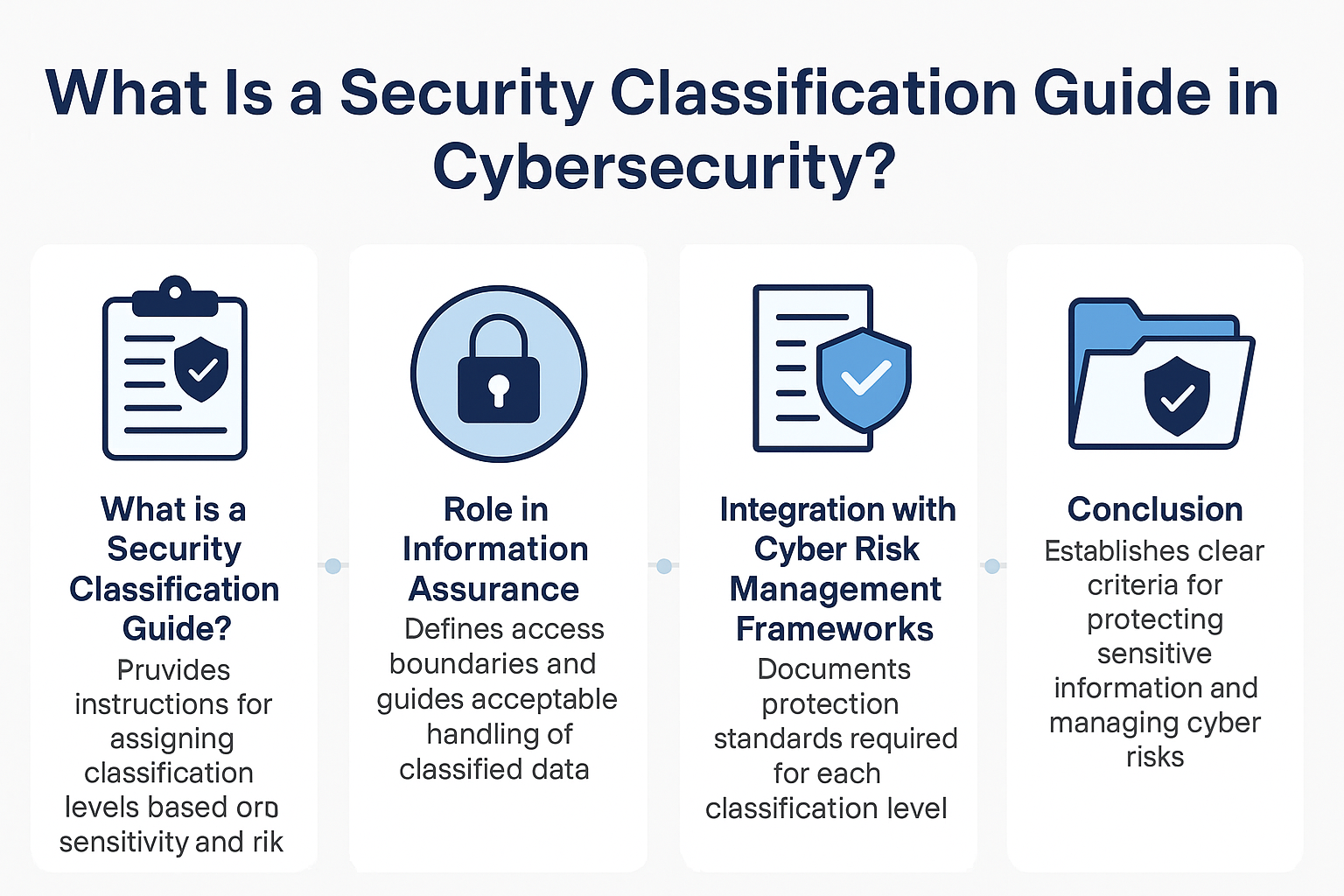
What Is a Security Classification Guide in Cybersecurity?
A Security Classification Guide (SCG) defines how to categorize information assets by sensitivity, with clear instructions from authorized officials to ensure consistent, compliant data handling.
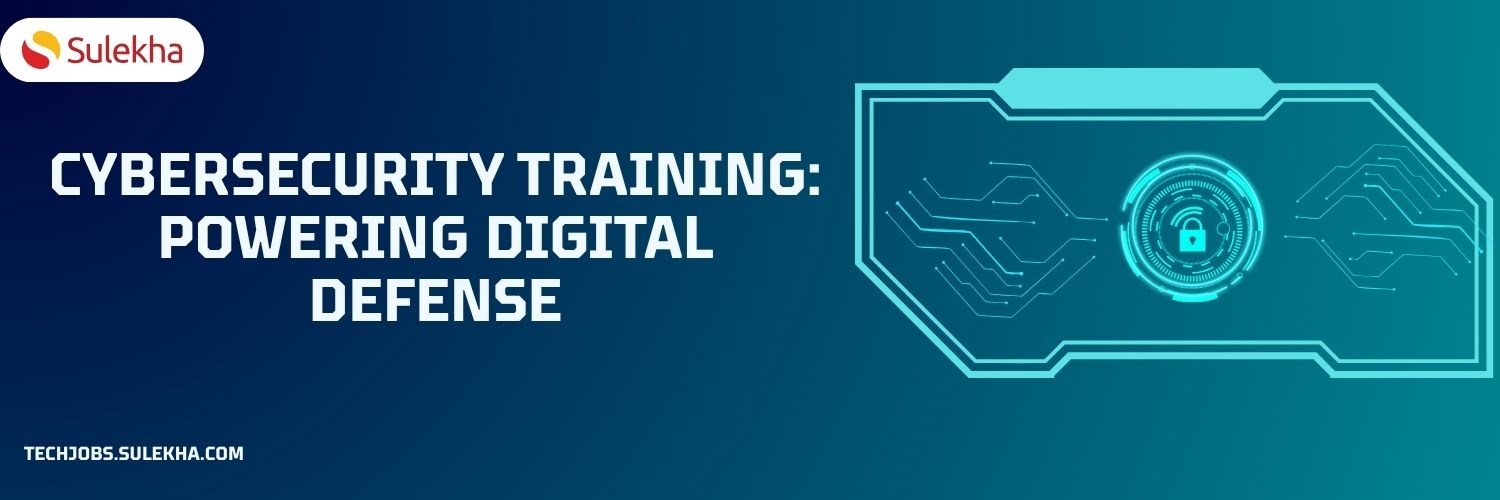
Cybersecurity Training: Powering Digital Defense
Explore top cybersecurity training programs in the USA to meet rising demand in digital defense. Learn about certifications, salaries, and career opportunities in this high-growth field.

What Does a Cybersecurity Analyst Do? 2025
Discover the vital role of a Cybersecurity Analyst in 2025, protecting organizations from evolving cyber threats through monitoring, threat assessment, and incident response. Learn about career paths, key skills, certifications, and why now is the be
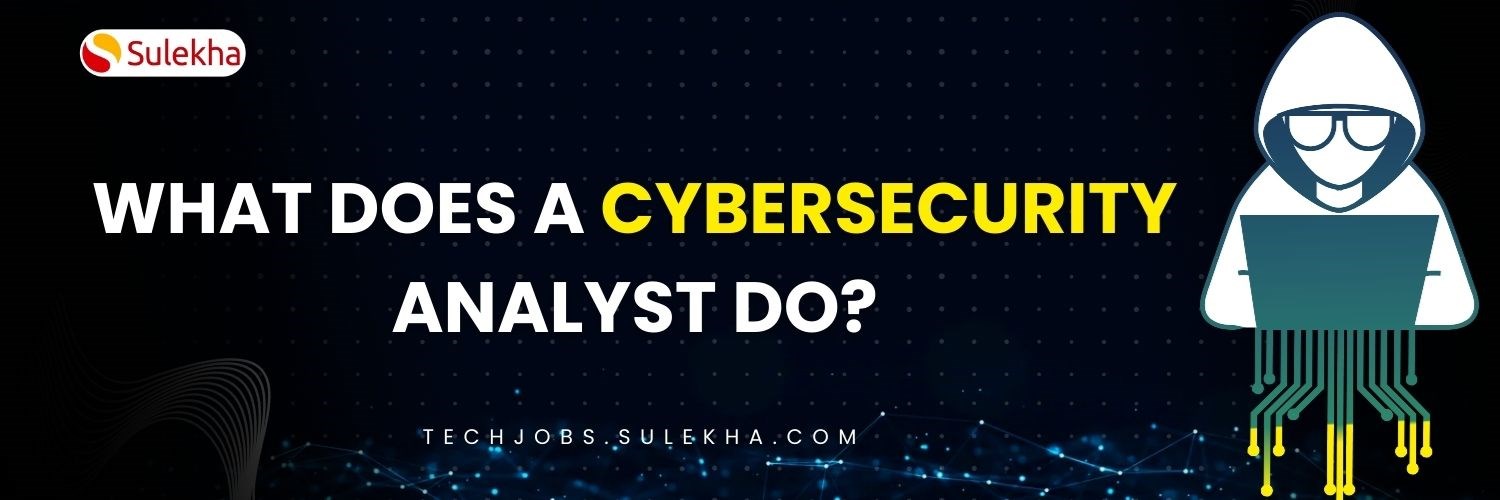
What Does a Cybersecurity Analyst Do?
Learn about the role of a Cybersecurity Analyst, responsible for protecting an organization's computer networks from cyberattacks.

10 Popular Cybersecurity Certifications
From CompTIA Security+ to CISSP, these certifications can boost your career and demonstrate your commitment to protecting computer systems and networks.

What are the most popular technical certifications for future career advancement?
Unlock your potential with insights into 5 popular technical certifications for future career growth, spanning cybersecurity, blockchain, cloud computing and more. Explore pathways for professional advancement today.

How to Become a Security Architect: 2024 Career Guide
How to Become a Security Architect: 2024 Career Guide In today's fast-paced and digitally interconnected world, the role of a Security Architect
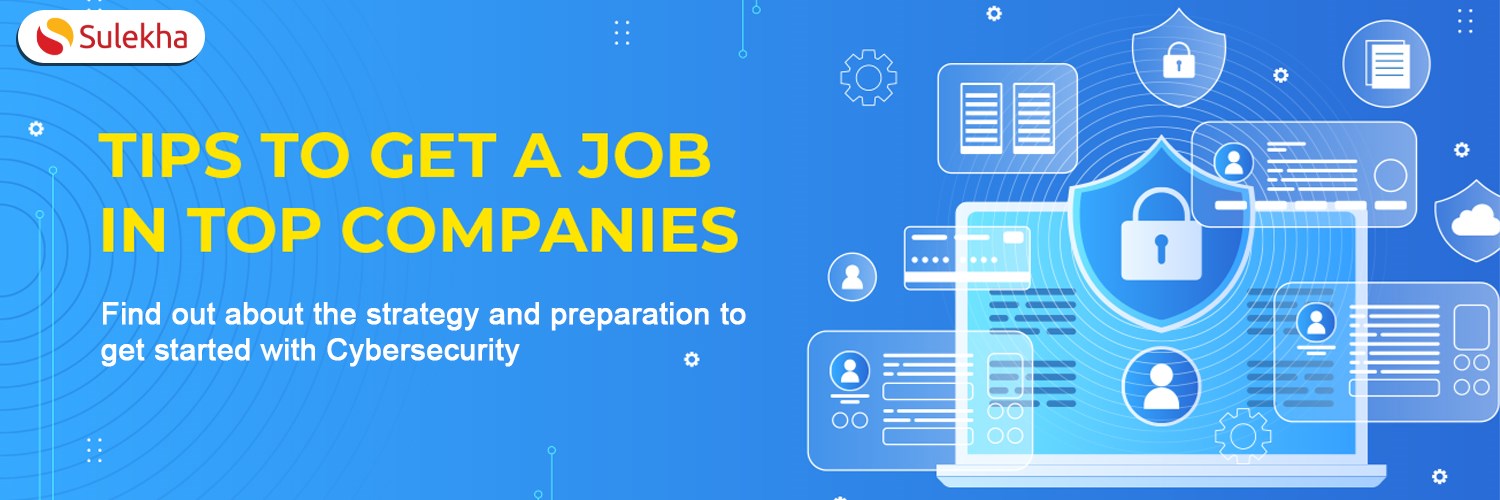
Tips to get a job in top companies - Find out about the strategy and preparation to get started with Cybersecurity
As companies adopt cloud services, IoT devices, and remote work solutions, their attack surface expands. Cybersecurity experts are essential to ensure the security of these technologies and networks. The expertise of cybersecurity specialists bolster
Latest blogs on technology to explore

From Student to AI Pro: What Does Prompt Engineering Entail and How Do You Start?
Explore the growing field of prompt engineering, a vital skill for AI enthusiasts. Learn how to craft optimized prompts for tools like ChatGPT and Gemini, and discover the career opportunities and skills needed to succeed in this fast-evolving indust

How Security Classification Guides Strengthen Data Protection in Modern Cybersecurity
A Security Classification Guide (SCG) defines data protection standards, ensuring sensitive information is handled securely across all levels. By outlining confidentiality, access controls, and declassification procedures, SCGs strengthen cybersecuri

Artificial Intelligence – A Growing Field of Study for Modern Learners
Artificial Intelligence is becoming a top study choice due to high job demand and future scope. This blog explains key subjects, career opportunities, and a simple AI study roadmap to help beginners start learning and build a strong career in the AI

Java in 2026: Why This ‘Old’ Language Is Still Your Golden Ticket to a Tech Career (And Where to Learn It!
Think Java is old news? Think again! 90% of Fortune 500 companies (yes, including Google, Amazon, and Netflix) run on Java (Oracle, 2025). From Android apps to banking systems, Java is the backbone of tech—and Sulekha IT Services is your fast track t

From Student to AI Pro: What Does Prompt Engineering Entail and How Do You Start?
Learn what prompt engineering is, why it matters, and how students and professionals can start mastering AI tools like ChatGPT, Gemini, and Copilot.

Cyber Security in 2025: The Golden Ticket to a Future-Proof Career
Cyber security jobs are growing 35% faster than any other tech field (U.S. Bureau of Labor Statistics, 2024)—and the average salary is $100,000+ per year! In a world where data breaches cost businesses $4.45 million on average (IBM, 2024), cyber secu

SAP SD in 2025: Your Ticket to a High-Flying IT Career
In the fast-paced world of IT and enterprise software, SAP SD (Sales and Distribution) is the secret sauce that keeps businesses running smoothly. Whether it’s managing customer orders, pricing, shipping, or billing, SAP SD is the backbone of sales o

SAP FICO in 2025: Salary, Jobs & How to Get Certified
AP FICO professionals earn $90,000–$130,000/year in the USA and Canada—and demand is skyrocketing! If you’re eyeing a future-proof IT career, SAP FICO (Financial Accounting & Controlling) is your golden ticket. But where do you start? Sulekha IT Serv

Train Like an AI Engineer: The Smartest Career Move You’ll Make This Year!
Why AI Engineering Is the Hottest Skillset Right Now From self-driving cars to chatbots that sound eerily human, Artificial Intelligence is no longer science fiction — it’s the backbone of modern tech. And guess what? Companies across the USA and Can
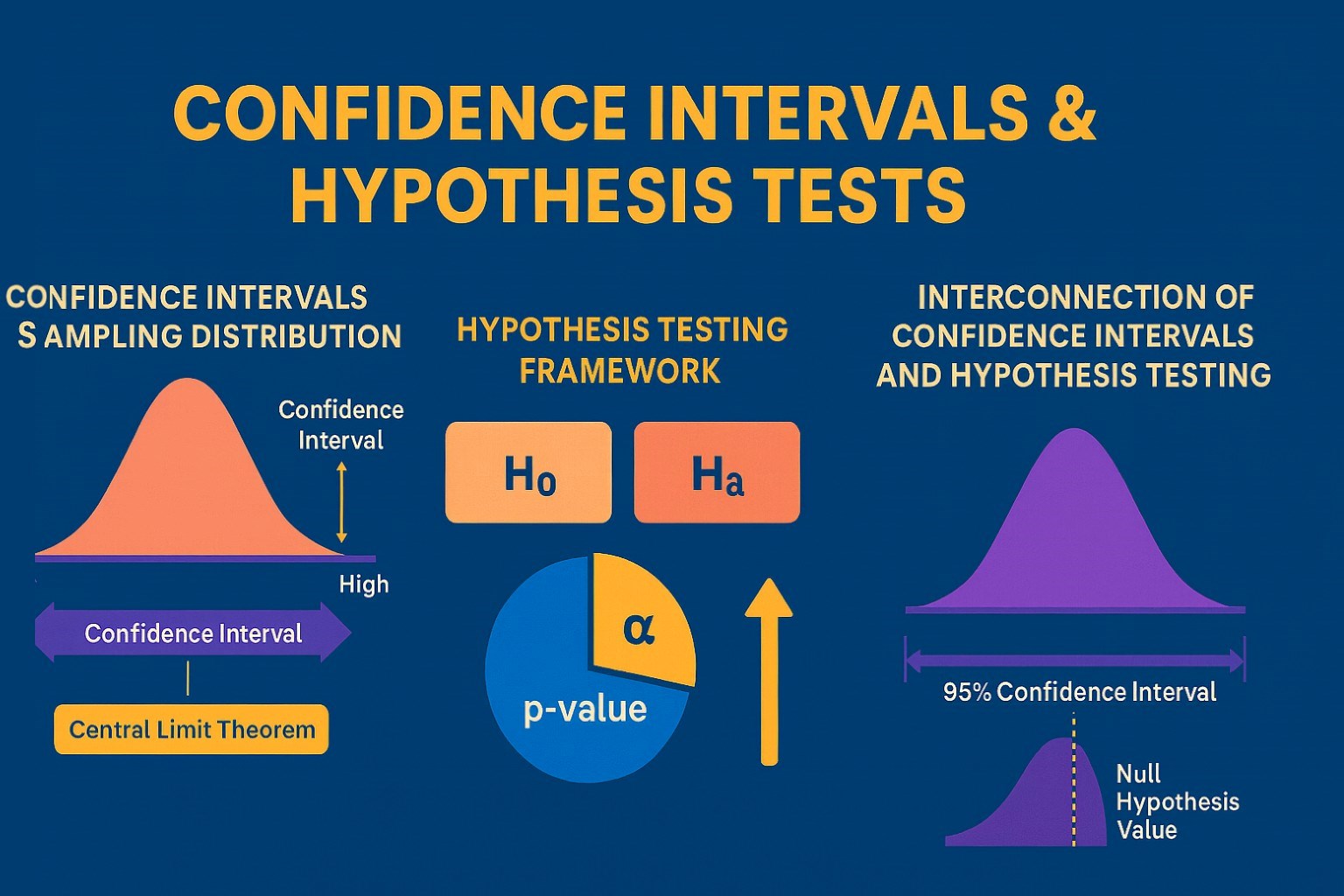
Confidence Intervals & Hypothesis Tests: The Data Science Path to Generalization
Learn how confidence intervals and hypothesis tests turn sample data into reliable population insights in data science. Understand CLT, p-values, and significance to generalize results, quantify uncertainty, and make evidence-based decisions.
